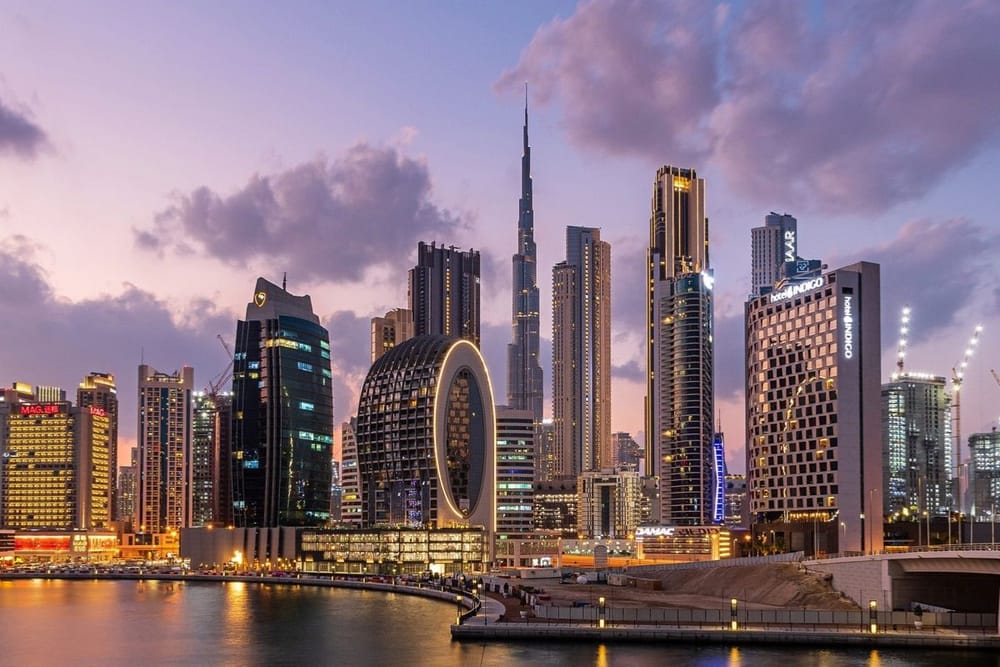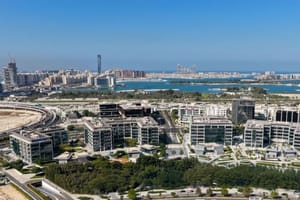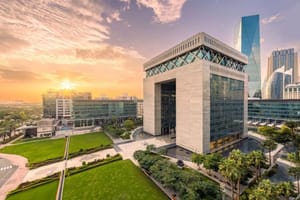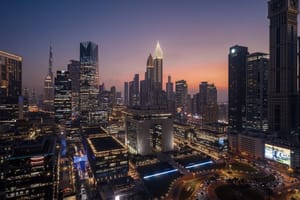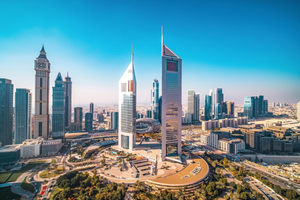As 2024 approaches its end, all eyes are on Dubai's Real Estate Forecast for 2025. With the city's property market continuing to draw global attention, both seasoned and new investors are keen to understand the future landscape. Over the past few years, Dubai has solidified its position as a leading real estate hub, backed by government reforms, population growth, and high-yield opportunities.
But what does 2025 hold for real estate in Dubai? Let’s explore the key drivers, trends, and numbers that will shape the market in the coming year.
A Strong Foundation: The Current State of Dubai’s Real Estate
The Dubai real estate market has experienced significant growth in 2024, with a surge in property transactions, especially in the luxury segment. According to the Dubai Land Department (DLD), the total value of real estate transactions in the first half of 2024 reached AED 177.4 billion ($48.3 billion), reflecting a 25% increase compared to the same period in 2023.
This rapid growth is attributed to a combination of factors such as Expo 2020’s legacy impact, a recovering global economy, and Dubai's increasing appeal as a safe haven for investors amid global uncertainties.
Drivers for 2025 Growth
Dubai’s real estate market is expected to maintain its upward trajectory in 2025, fueled by several key factors:
1. Population Growth and Influx of Expatriates:
The population of Dubai is expected to reach over 4 million by 2025, driven by ongoing expatriate influx and government initiatives to attract talent. This increase in population will continue to fuel demand for residential properties, particularly in emerging areas such as Dubai South, Jumeirah Village Circle, and Dubai Hills Estate.
2. Foreign Investment and New Regulations:
In 2024, Dubai implemented new policies allowing 100% foreign ownership of commercial companies outside free zones. This move is expected to boost investment in commercial real estate sectors such as offices and retail spaces. Furthermore, the golden visa scheme has been expanded, making Dubai even more attractive to high-net-worth individuals, thereby increasing demand for high-end luxury properties.
3. Tourism and Short-Term Rental Boom:
With Dubai welcoming over 20 million visitors in 2024, the short-term rental market has seen unprecedented growth. According to Airbnb data, the average occupancy rate in Dubai increased to 72% in 2024. The tourism boom, especially with events like COP28 and a strong international conference calendar, will likely support a robust short-term rental market into 2025.
Real Estate Forecast for 2025
1. Residential Market: Moderate Price Growth
In 2025, the residential sector is anticipated to witness moderate price growth, particularly in mid-range properties. The average residential property price in Dubai increased by 12% in 2024, with popular areas such as Downtown Dubai and Palm Jumeirah seeing a 15% and 18% rise, respectively. However, 2025 is expected to bring more balanced growth as supply catches up with demand. New residential developments such as the Dubai Creek Harbour project and Emaar’s Beachfront will add approximately 30,000 new units by the end of 2025.
Average rental yields in Dubai's residential sector are expected to remain steady at 5-6%, making the city one of the most lucrative markets for rental income. Areas such as Jumeirah Village Circle and Dubai Sports City will continue to be attractive for investors seeking high rental yields.
2. Commercial Real Estate: Increasing Demand for Office Spaces
The commercial real estate sector, particularly office spaces, is poised for substantial growth in 2025. In 2024, office space demand grew by 10%, with vacancy rates in premium areas such as DIFC (Dubai International Financial Centre) dropping below 5%. With businesses expanding in the post-pandemic era and hybrid working models increasing demand for flexible office spaces, the commercial market is set for continued expansion. The introduction of green office spaces to meet sustainability goals, particularly in districts like Dubai Silicon Oasis, will also attract environmentally-conscious corporations.
3. Luxury and Ultra-Luxury Segment: Strong Demand
High-end properties will continue to be a focal point in Dubai’s real estate market in 2025. The luxury property segment recorded a 35% year-on-year increase in transaction volume during 2024, and this trend shows no signs of slowing down. Areas like Palm Jumeirah, Emirates Hills, and Bluewater's Island are expected to see continued demand from ultra-high-net-worth individuals (UHNWIs), particularly those from Europe and Asia. The average price per square foot in these luxury areas is projected to rise by 10-12% in 2025.
In conclusion, Dubai’s Real Estate Forecast for 2025 presents a promising outlook for investors. With the residential, commercial, and luxury segments showing growth potential, Dubai will remain a top destination for real estate investment. For those looking to invest in Dubai’s ever-evolving market, 2025 could present lucrative opportunities, particularly in high-yield rental areas and luxury properties.
